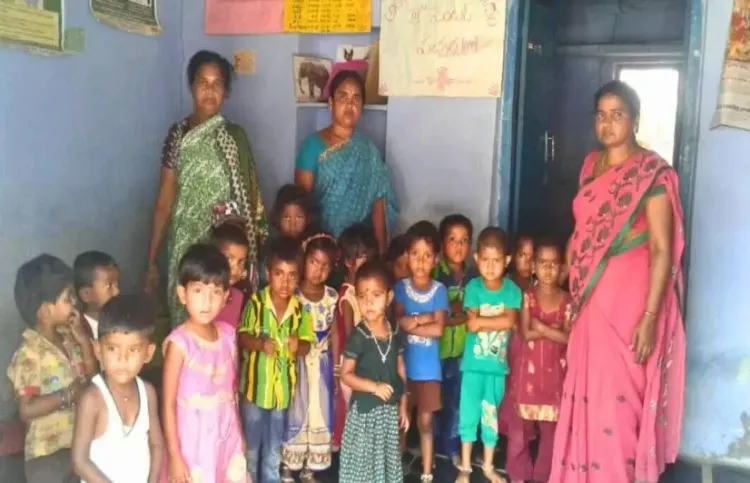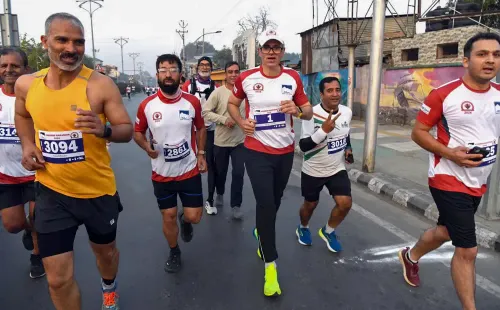Did the Centre Approve 14,599 Anganwadi Cum Creches Under the Palna Scheme?

Synopsis
Key Takeaways
- 14,599 anganwadi cum creches approved under the Palna Scheme.
- The scheme aims to enhance childcare facilities across the country.
- Focus on supporting women's workforce participation.
- All mothers can access these creche services.
- Significant step towards gender equity in the workforce.
New Delhi, July 23 (NationPress) The government has granted approval for 14,599 anganwadi cum creches under the Palna Scheme, aimed at offering day care facilities and safeguarding children, as reported to Parliament on Wednesday.
The Palna Scheme was initiated by the Ministry of Women and Child Development in April 2022.
According to the Minister of State for Women and Child Development, Savitri Thakur, during the 15th Finance Cycle, which extends to FY 2025-26, a total of 17,000 Aganwadi-cum-Creches (AWCCs) are planned for establishment under this scheme. This information was shared during a question in the Rajya Sabha.
Thakur confirmed that, as of now, the Ministry has approved 14,599 AWCCs based on proposals received from various States/UTs.
Anganwadi centres represent the largest childcare network globally, dedicated to delivering essential care and support to children, ensuring services reach even the most remote areas.
The anganwadi cum creche provides all-day childcare support, ensuring children's well-being in a secure environment.
This initiative also strives to enhance women's workforce participation in the economy.
The Palna Scheme aims to ensure quality crèche facilities in a safe environment for children aged 6 months to 6 years, along with nutritional support, health and cognitive development, growth monitoring, and immunization, Thakur elaborated.
She emphasized that creche facilities under Palna are accessible to all mothers, regardless of their employment status.
This scheme additionally assists working women in urban areas who previously relied on joint family support while at work and are now in need of dependable day care services that guarantee quality care and protection for their children.
The minister remarked, 'The absence of adequate day-care services often hinders women from pursuing employment.' She highlighted the urgent necessity for enhanced quality and accessibility of day care services/crèches for working women across all socioeconomic groups, both in organized and unorganized sectors.
The Minister of State noted that formalizing care work supports the 'decent work campaign', contributing to achieving Sustainable Development Goal 8 – Decent work and economic growth.
Thakur concluded, 'This will empower more mothers, freeing them from unpaid childcare responsibilities, allowing them to seek gainful employment.'









